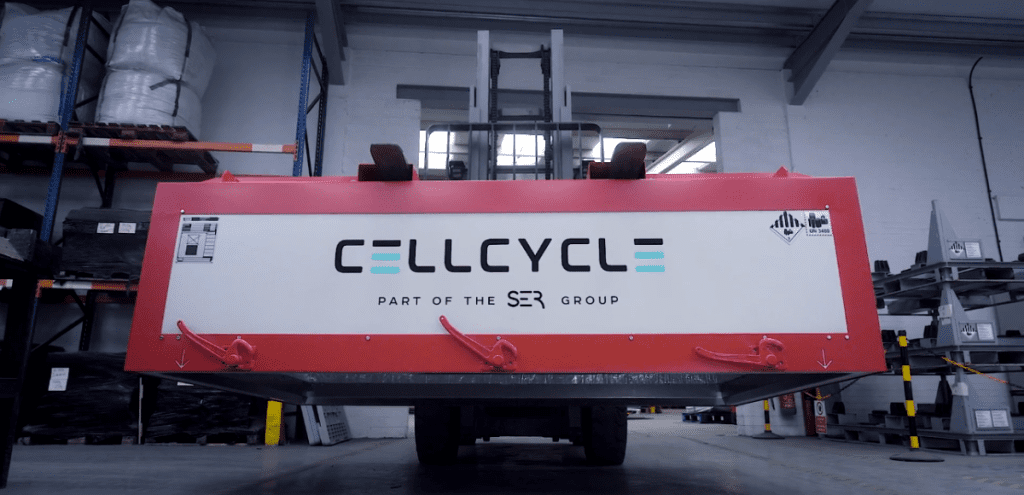1. Introduction
In a world increasingly reliant on batteries, the call for sustainable practices has never been more urgent. The battery strategy of the UK outlines the government’s ambition for the country to establish a globally competitive battery supply chain by the year 2030. As we embark on this transformative journey, our blog series aims to unravel the intricacies of the strategy and explore the pivotal role businesses and consumers can play. Join us in understanding the significance of battery recycling, the benefits of a comprehensive program, and the collaborative efforts needed to make a meaningful impact. In the spotlight is Cellcycle, a trailblazer celebrating its one-year milestone, championing advanced battery recycling and embodying the spirit of sustainability. As we delve into the practical steps, commitments, and partnerships that drive change, we invite you to be a part of this collective effort. Together, let’s make a difference in revolutionizing battery recycling for a more sustainable and environmentally friendly future in the UK. Stay tuned for insights, innovations, and inspiration on this remarkable journey.
2. The UK Battery Strategy 2023: A call to action
The Battery Strategy 2023 sets out a clear call to action for businesses, industry stakeholders, and consumers in the UK to actively participate in the revolutionising of battery recycling. The government recognises the importance of collaboration and the need for everyone to play their part in achieving the ambitious goals outlined in the strategy.
One of the key elements of the strategy is promoting the design of batteries that are easier to dismantle and recycle. By working closely with manufacturers, the government aims to incentivize the development of batteries that are more sustainable throughout their lifecycle.
Furthermore, the strategy emphasises the importance of increasing the collection and recycling rates of batteries across the country. This will involve implementing effective recycling schemes, educating consumers on the importance of recycling, and putting in place infrastructure to support the collection and recycling process.
In our next blog section, we will delve deeper into the specific actions that businesses and consumers can take to contribute to the UK’s Battery Strategy 2023 and help revolutionize battery recycling in the country. Stay tuned!
3. Cellcycle: Revolutionising Battery Recycling for a Sustainable Future in the UK
Cellcycle has emerged as a trailblazer in the field of advanced battery recycling in the UK, offering a comprehensive and sustainable solution to clients across the nation. With a focus on compliance and environmental responsibility, Cellcycle utilises state-of-the-art technology to efficiently treat and recycle a diverse range of batteries, encompassing Lithium-ion, nickel-metal hydride, lithium, nickel-cadmium, lead-acid, and alkaline.
What sets Cellcycle apart is its unwavering commitment to continuous innovation. Through strategic partnerships with industry leaders and collaboration with top-tier universities in the UK, the company remains at the forefront of battery recycling advancements. This collaborative effort not only facilitates the responsible disposal of batteries but also drives the development of new processes and technologies, ensuring that Cellcycle remains a dynamic force in sustainable practices.
Central to Cellcycle’s mission is the concept of closing the recycling loop. The company plays a pivotal role in ensuring that materials recovered from used batteries are seamlessly reintegrated into the manufacturing process. This circular economy approach not only reduces the environmental impact of battery disposal but also contributes to a more sustainable and resource-efficient battery industry.
Beyond technological prowess, Cellcycle places a strong emphasis on providing cost-effective solutions. By constantly developing and refining recycling processes, the company ensures that sustainability is not only a responsible choice but also an economically viable one. This approach fosters a culture of widespread adoption of eco-conscious battery disposal practices, furthering Cellcycle’s impact on creating a greener future.
As Cellcycle celebrates its one-year milestone, it stands as a beacon of sustainability, shaping the trajectory of battery recycling in the UK. The company’s holistic approach, blending cutting-edge technology, continuous innovation, and a commitment to cost-effectiveness, positions it as a key player in propelling the nation toward a cleaner and more sustainable tomorrow.
4. The benefits of a comprehensive battery recycling program
Implementing a comprehensive battery recycling program has numerous benefits for both businesses and consumers. By participating in such initiatives, we can collectively make a significant impact on the success of the UK’s Battery Strategy 2023.
One of the key advantages of a comprehensive battery recycling program is the reduction of environmental pollution. Improperly disposed batteries can leak harmful chemicals and heavy metals into the soil, water, and air, posing a serious threat to our ecosystems and human health. By recycling batteries, we can prevent these pollutants from entering the environment and mitigate their negative effects.
Moreover, battery recycling contributes to the conservation of valuable resources. Batteries contain valuable materials such as lithium, cobalt, and nickel, which can be extracted and reused in the manufacturing of new batteries. By recycling batteries, we reduce the need for new resource extraction and minimise the reliance on raw materials, ultimately conserving natural resources.
In addition to environmental and resource benefits, battery recycling also supports the development of a circular economy. Through the recycling process, materials from old batteries can be transformed into new products, creating a closed-loop system that reduces waste and fosters sustainable economic growth.
Furthermore, participating in battery recycling initiatives helps businesses and individuals meet their corporate social responsibility goals. By actively engaging in sustainable practices, companies demonstrate their commitment to environmental stewardship and community welfare, enhancing their reputation and brand image.
In the next section, we will explore the practical steps that businesses and consumers can take to actively participate in battery recycling initiatives and maximize the benefits of a comprehensive recycling program. Don’t miss out on the opportunity to make a positive impact on the environment and contribute to the UK’s Battery Strategy 2023. Stay tuned!
6. Collaborating with government and industry partners
Collaborating with government and industry partners is crucial for the successful implementation of a comprehensive battery recycling program. The government plays a significant role in setting policies and regulations that drive sustainable practices and create a favourable environment for recycling initiatives. By working hand in hand with government agencies, businesses can ensure compliance with legal requirements and access support mechanisms, such as funding and incentives.
Industry partners, including battery manufacturers, retailers, and waste management companies, also play a vital role in the recycling process. Collaborating with these stakeholders can help streamline the collection, transportation, and processing of batteries, ensuring efficiency and effectiveness in the overall recycling system. Furthermore, industry partnerships enable knowledge sharing, technological advancements, and innovation in battery recycling, driving continuous improvement and optimisation of recycling processes.
To foster collaboration, it is essential for businesses to actively engage with government agencies and industry partners through industry associations, working groups, and public-private partnerships. By joining forces, we can collectively contribute to the success of the UK Battery Strategy 2023 and revolutionise battery recycling practices. Stay tuned for the next section, where we discuss how businesses can establish partnerships and forge strong collaborations to make a transformative impact.
8. Conclusion: Together, we can make a difference in battery recycling
In conclusion, our commitment to revolutionizing battery recycling practices in the UK is an ongoing journey that requires collective effort. By investing in cutting-edge technologies, infrastructure, and processes, we are fostering the development of innovative solutions that can recover valuable materials from batteries, reducing the need for virgin resources and minimising waste.
However, achieving our vision for the future of battery recycling in the UK cannot be accomplished by us alone. We recognize the importance of education and awareness in driving behaviour change and promoting responsible battery disposal. That is why we are committed to raising awareness among consumers, businesses, and communities about the positive environmental impact of battery recycling.
We invite you to join us on this journey by staying tuned to learn more about the exciting projects we have in the pipeline. Together, we can create a more sustainable and environmentally friendly future for battery recycling in the UK. Let’s make a difference.


